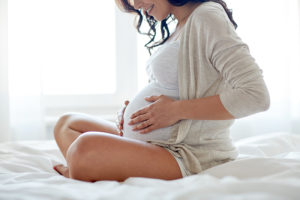In Traditional Chinese Medicine (TCM) there are subdivisions of pathogens that can lead to illness. External factors like wind cold and damp, internal factors i.e. emotions and emotional imbalance and neither internal nor external e.g. parasites, bugs and viruses to name a few. I would like to discuss the internal factors – also known as the Qi Qing or 7 emotions.
Firstly, let me state that there are obviously more than 7 emotions but we may consider these 7 root emotions or basic emotions. Each of these emotions corresponds to a particular organ and can effect human functioning in different ways. The emotions are essential to healthy human functioning and only become potentially pathogenic when taken to excess or in the case of complete absence.
The emotions are:
- Joy
- Sadness/Grief
- Anger
- Fear
- Pensiveness/worry
- Fright
- Shock
Joy is related to the heart in TCM. The expression of joy is essential to healthy human functioning and an inability to experience joy is usually a sign of some form of disharmony in the heart. However, the over expression of joy can also be injurious to the heart. We see this in cases of mania or “adrenaline junkies” who need progressively bigger and more exciting kicks in order to feel alive. The over expression of joy can exhaust the heart and lead to a crash e.g. cases of manic depression or bipolar whereby the high is followed by a depressing low. In this case Joy is more a reference to over-excitement. Symptoms can include heart palpitations and insomnia
Sadness or grief is mostly associated with the lungs. Excessive grief can impair the energy of the lungs. The best example of this is how we tend to lower our heads and sink inwards when we cry. The lungs Qi collapses and is no longer able to fill out the chest. In cases of recurrent respiratory chest infections there can often be an underlying grief impairing the lungs. Frequent colds and flu are often common because the defensive Qi (immune system) is weakened.
Anger most commonly affects the liver and results in stagnation of liver Qi (energy). Anger causes heat and heat rises causing headaches, migraines and dizziness. Liver Qi stagnation can also give rise to painful and irregular menstruation as the liver governs to smooth flow of blood in TCM. These symptoms are often concurrent. Pain in the sides is often associated with anger disturbing the liver.
Fear is the emotion most commonly associated with the kidneys. We know now through scientific research that the fight or flight response is controlled by the adrenal glands in the kidneys. The ancient Chinese physicians in their infinite wisdom made this association thousands of years ago. Fear makes Qi descend a symptom of which is the feeling of loose bowels and a need to urinate when fearful. This type of fear, however, is more deep seated and less sudden than fright and is often a fear in which the cause is difficult to identify. In weakening the kidneys symptoms of fear can include back, knee and joint pain.
Pensiveness/Worry is associated with the spleen. Over thinking injures the spleen which governs the digestive process and the creation of Qi and blood. This in turn can lead to fatigue, lethargy and an inability to concentrate. Excessive study or computer usage falls into this category, the sitting posture compresses the epigastrium and this inhibits the flow of spleen Qi.
Fright is related to both the kidneys and the heart. There is a symbiotic relationship between the two in Chinese medicine (obviously there is between all organs but some have specific direct associations). The kidney water calms the heart fire which in turn warms the kidney water. Fright initially affects the heart but if it persists it becomes fear and progresses to the kidneys.
Shock is most readily associated with the gall bladder which in TCM is subservient to the heart. It can lead to indecisiveness, confusion and a lack of courage.




